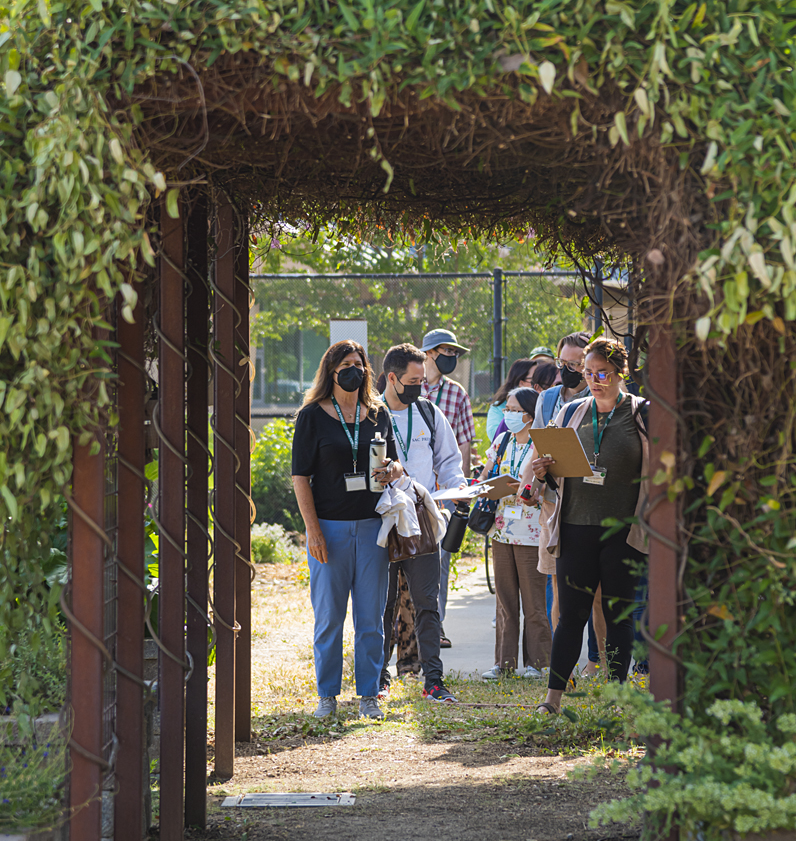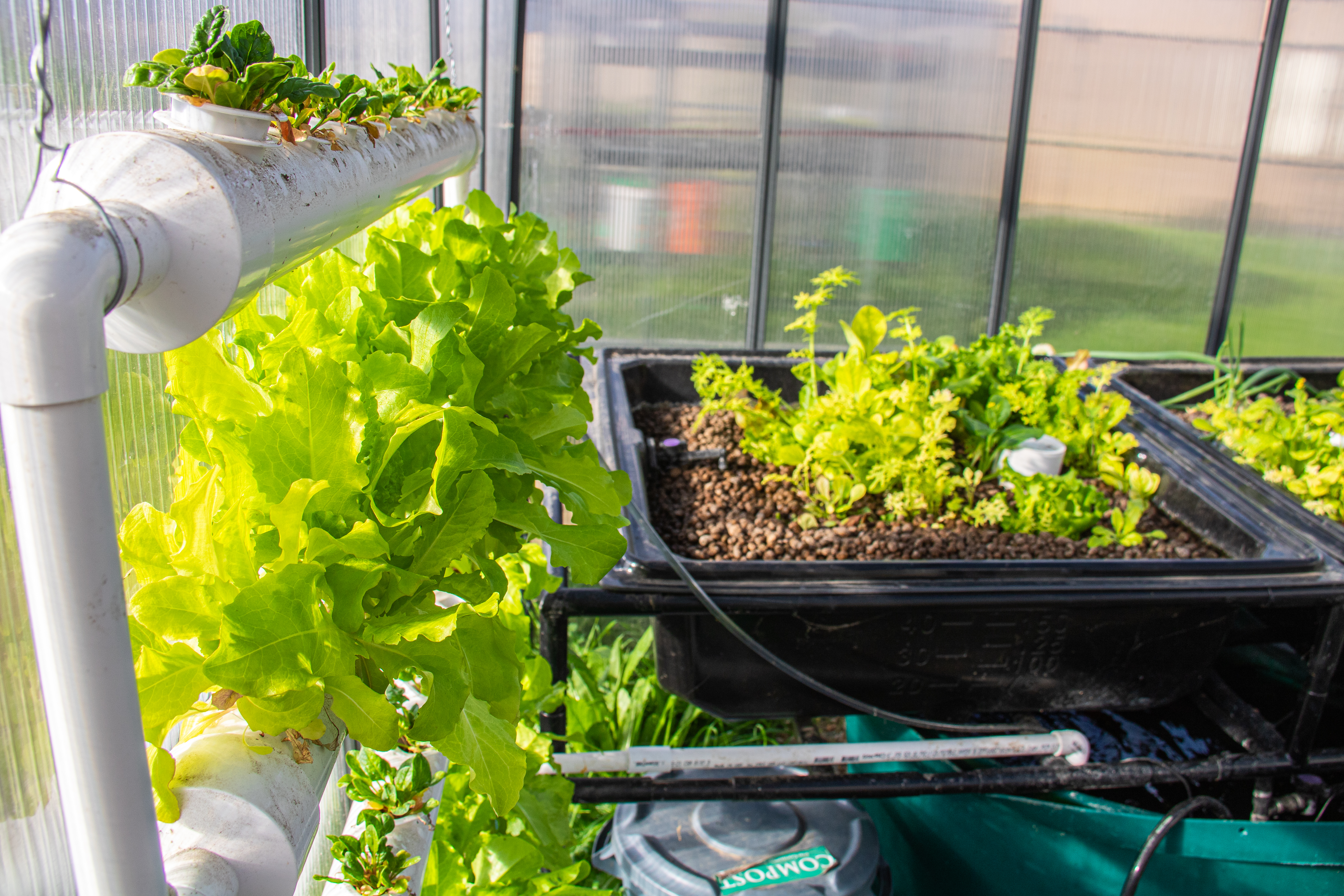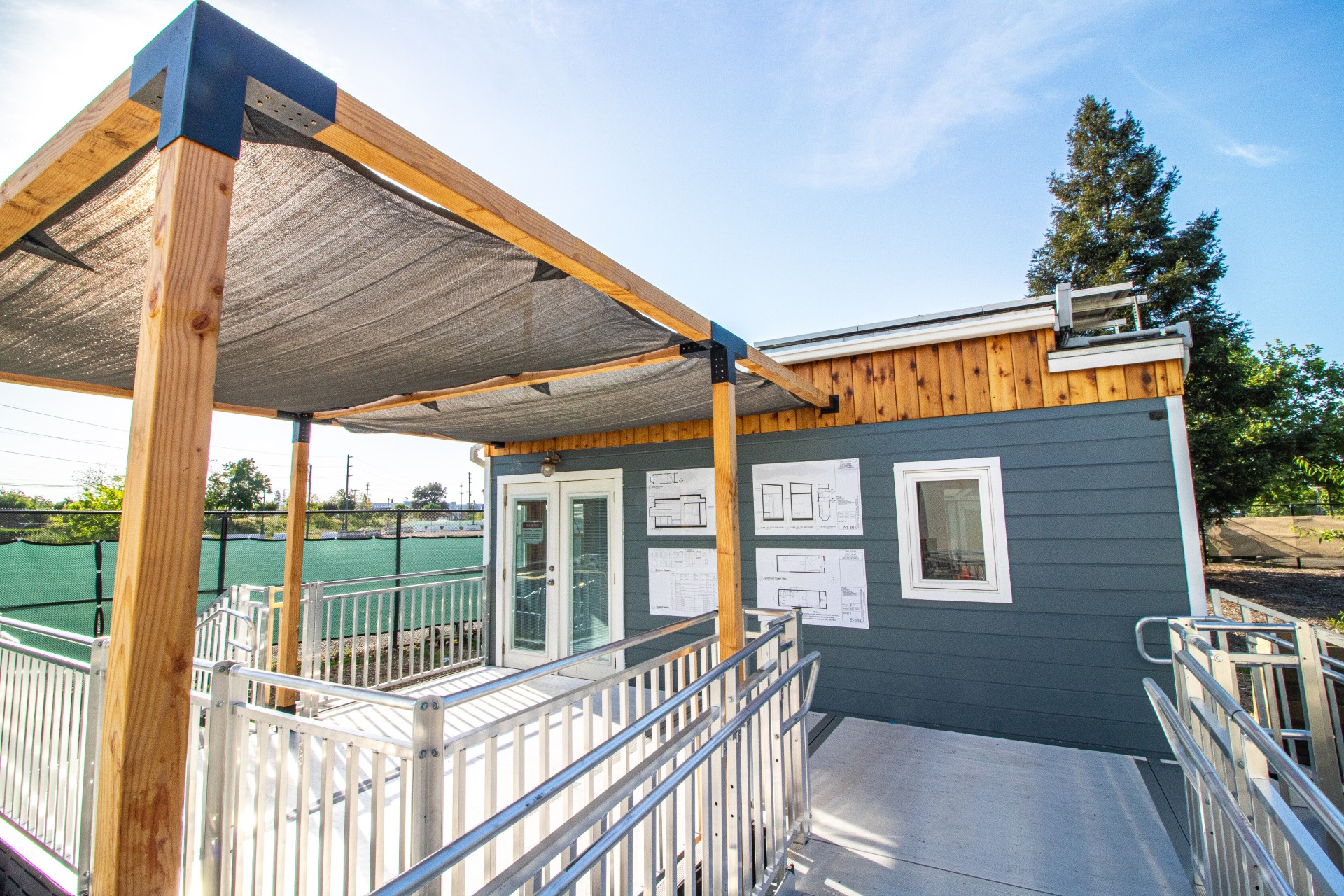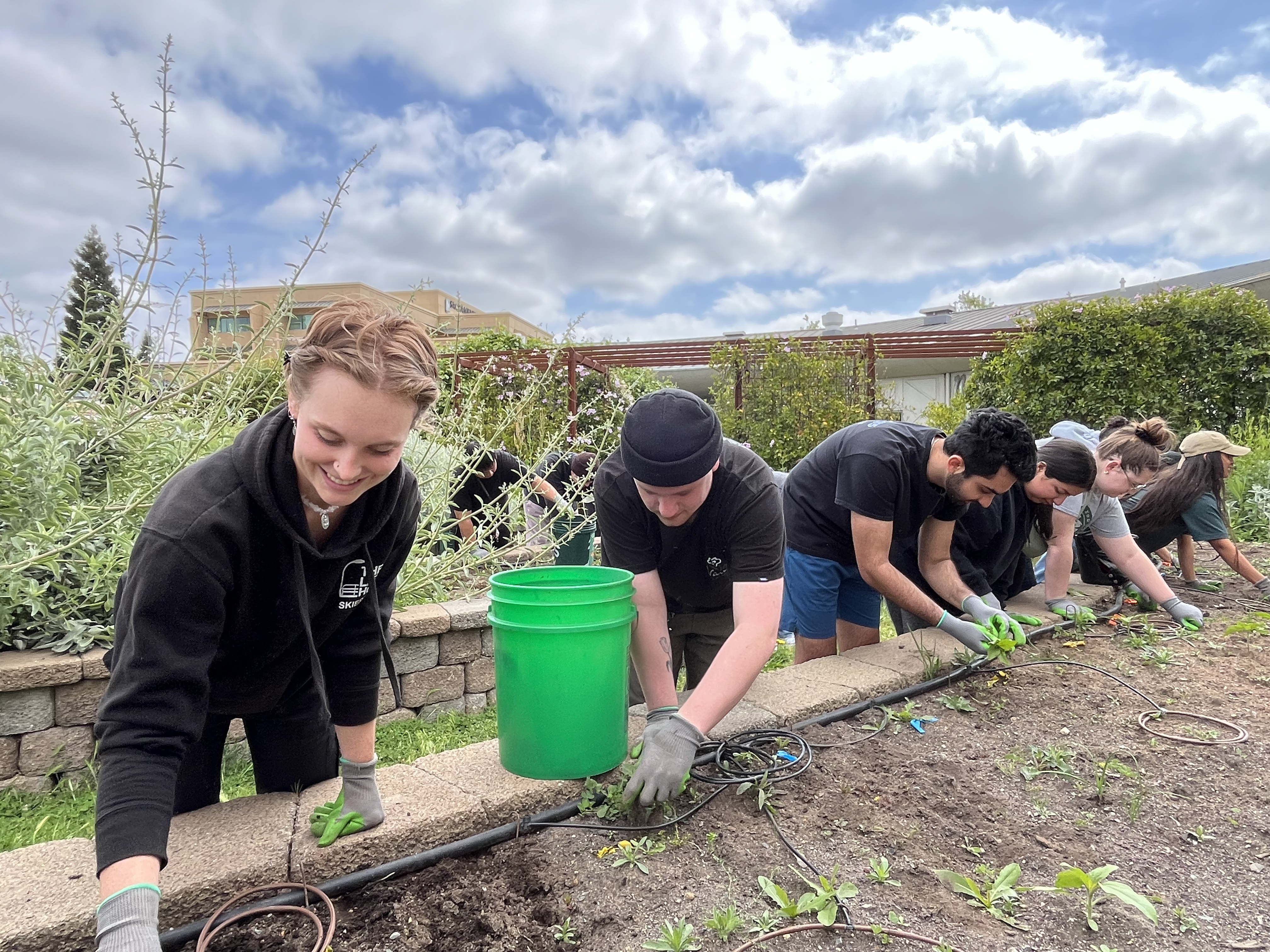Support Page Content
CapRadio Garden
History & Purpose
The CapRadio Garden was originally built by Capital Public Radio as a gathering space for community members, policy makers, educators, and students, to discuss sustainability and the critical challenges facing the global food system. It has provided a place for hands-on activities, lectures and dialogue around food issues. In 2020, the Office of Sustainability acquired the garden from Capital Public Radio with the goal of continuing their work and expanding the garden to a broader student and faculty audience. The change also allowed 100% of the produce grown in the garden to be sent directly to the campus ASI Food Pantry. Each year thousands of pounds of fresh fruits and vegetables are planted, harvested and delivered by students to the ASI Food Pantry. The garden has also seen the addition of honeybees, an aquaponics system, a tiny house, and a small flock of chickens. The space is regularly used by students and faculty as an outdoor teaching space and living laboratory for sustainability research.


Aquaponics
The CapRadio Garden houses a small aquaponics system to showcase modular urban agriculture. Aquaponics is the marriage of aquaculture and hydroponics into a closed-loop biological system. Three biological components make up the loop; fish, bacteria, and plants. Bacteria utilize ammonia produced by the fish and rearrange the nitrogen molecules into usable fertilizer for plants. This urban growing practice uses 90% less water than conventional farming methods and improves production rates due to the lack of competition for nutrients associated with soil-based agriculture. It also dramatically reduces the number of weeds that grow in the system.
Anchor University
The Office of Sustainability strengthens Sac State’s commitment as an anchor university by providing free compost to underserved communities and local farms throughout the Sacramento region. Our donations help urban gardens produce healthy food and create resilient communities. Additionally, sustainability staff provide education and outreach through campus tours and in-class demonstrations at local schools.


Tiny House
The tiny house, originally built by Construction Management and Mechanical Engineering students for a SMUD Tiny House competition, has found a new home at the CapRadio Garden. The building recently received an electric induction stove and ADA accessible deck and ramp. As a permanent feature at the Garden, it is used during tours to educate K-12, college students, and the local community about the benefits of living sustainably.
Living Lab
The CapRadio Garden is a resource for growing local produce for the ASI Food Pantry, but also a non-traditional classroom space. The garden has permanent signage installed throughout, educating visitors on a variety of sustainability topics such as the importance of pollinators, the benefits of composting, and how renewable energy works. The site also offers space for research within various disciplines and is home to student projects such as a tiny home.
